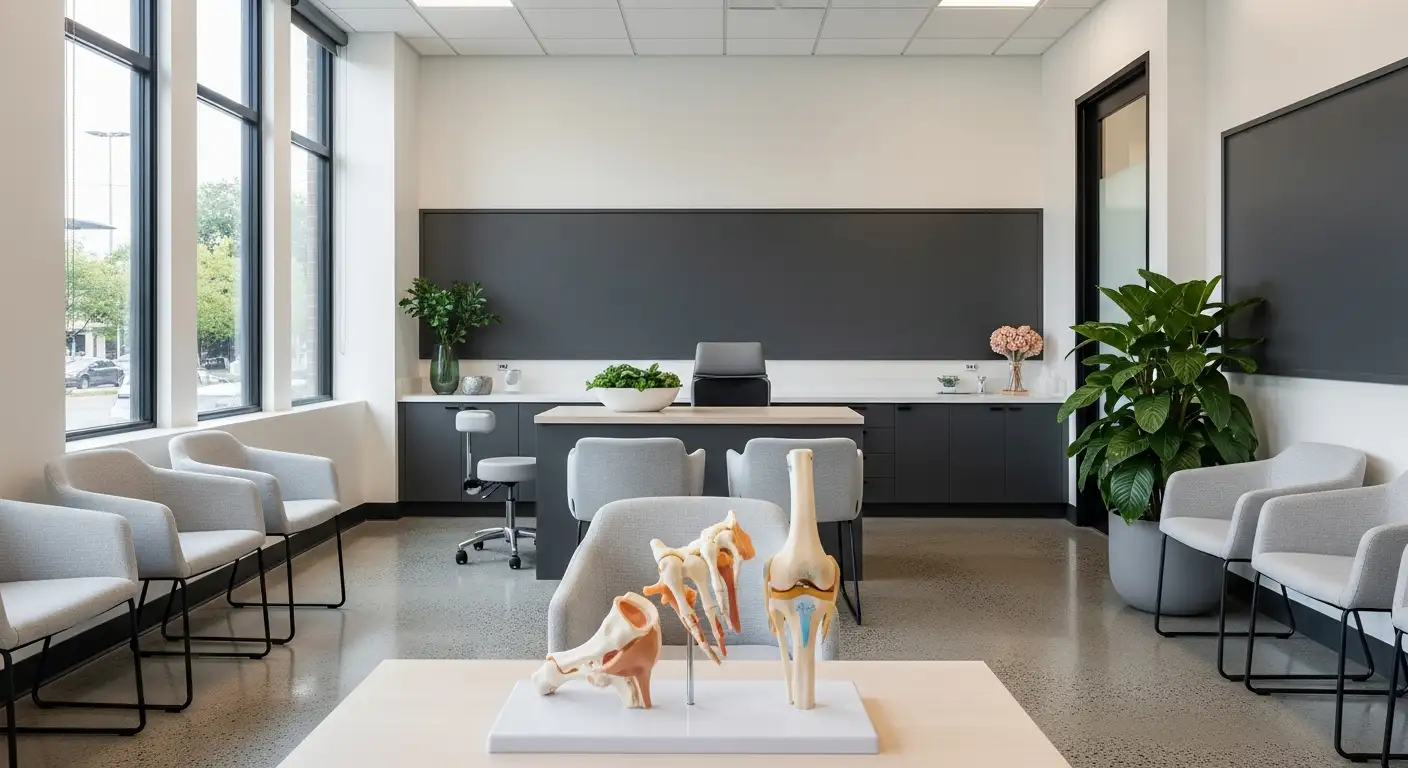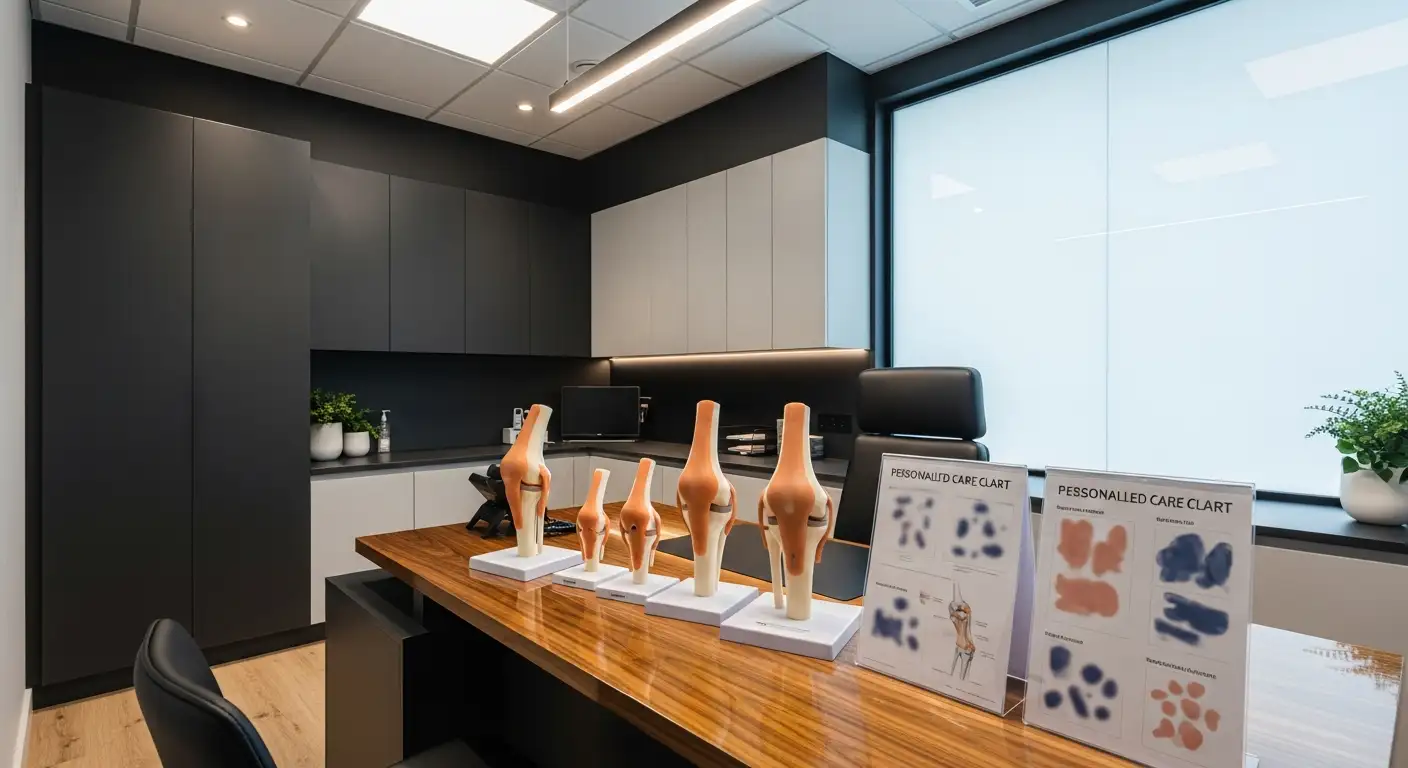Understanding Knee Pain Duration
One of the most frequent questions people ask when they experience knee discomfort is, "How long does knee pain last?" The duration of knee pain can vary significantly depending on a variety of factors, such as the cause and severity of the pain, as well as the individual's response to treatment.
Acute vs Chronic Knee Pain
Knee pain is typically categorized into two types: acute and chronic. Acute knee pain, which lasts for a short period, could result from an injury or accident. This type of pain usually improves on its own with rest and self-care measures, and typically lasts for a few days to several weeks.

On the other hand, chronic knee pain, lasting for an extended duration, could be due to an underlying medical condition like arthritis. This type of pain often requires medical intervention and may persist for months or even years. It's important to consult a healthcare professional if you experience chronic knee pain.
Factors Influencing Pain Duration
Many factors can influence how long knee pain lasts. For instance, the severity of the injury and the type of knee condition can play significant roles. Some injuries may lead to chronic knee pain if not adequately addressed. Similarly, certain conditions like arthritis can cause long-term or recurring pain [1].
An individual's healing capabilities also significantly impact the duration of knee pain. Some people may recover more quickly than others due to factors like their overall health, age, and the effectiveness of their treatment plan.
Knee pain that persists for more than a few days without improvement should be evaluated by a healthcare provider. Early diagnosis and appropriate treatment can help prevent further complications and shorten the duration of the pain [3].
Understanding the potential duration of knee pain can help individuals better manage their expectations and develop a suitable treatment plan. However, it is crucial to remember that each person's experience with knee pain is unique, and recovery timelines can vary. It is always recommended to seek professional medical advice for persistent or severe knee pain.
Common Causes of Knee Pain
To understand how long knee pain lasts, it's imperative to identify its root cause. Knee pain can arise from a variety of sources, including injuries and accidents, overuse and strain, and arthritis among other conditions.
Injuries and Accidents
Injuries and accidents are common causes of knee pain. These can include sprained or strained knee ligaments and muscles, torn cartilage, fractures, or dislocations. Such injuries can occur during sports, falls, or other sudden movements. Knee pain resulting from an injury or accident can range from mild discomfort to debilitating pain, depending on the severity of the injury. Immediate medical attention is advised to prevent further complications.
Overuse and Strain
Overuse and strain are other common causes of knee pain. Knee pain can be a symptom of common overuse issues like tendinitis, a condition that causes inflammation and pain in the tendons around the knee. This type of pain often results from activities that involve repeated knee bending, such as walking, running, or jumping. Over time, the continual wear and stress on the joint can lead to pain and inflammation. It's important to rest and avoid activities that exacerbate the pain while the knee heals.
Arthritis and Other Conditions
Arthritis is another frequent cause of knee pain. There are several types of arthritis that can affect the knee, including osteoarthritis, rheumatoid arthritis, and gout. These conditions can cause pain, swelling, and stiffness in the knee joint, making it difficult to move the knee. The duration of knee pain from arthritis can vary widely, from short-term flare-ups to chronic, long-term pain.
Other health conditions that can cause knee pain include infections, cysts, and diseases that affect the nerves in the knee.
Understanding the cause of knee pain is a critical step in determining the best course of treatment and gauging how long the pain will last. While self-care measures and medications can provide temporary relief, it's crucial to consult a healthcare professional for a proper diagnosis if the pain persists or worsens.
Diagnosing Knee Pain
When dealing with knee pain, it's essential to understand the root cause of the discomfort. This involves recognizing when to seek medical attention and understanding the diagnostic tests involved.
When to Seek Medical Attention
Knee pain can last from a few days to several months, depending on the cause and the individual's response to treatment. While knee pain can sometimes improve with self-care measures, physical therapy, or medication, it is crucial to consult a healthcare professional if the pain persists or worsens Mayo Clinic.
Knee pain that persists beyond 3 months is generally considered chronic pain Medical News Today. Furthermore, seeking timely medical attention, especially for knee pain that is severe, persistent, or accompanied by other concerning symptoms, is crucial to effectively address the underlying cause and prevent potential complications Mayo Clinic.
For many people, knee pain can be persistent and last a long time, but the length of time varies for each person and depends on the underlying cause of the pain Penn Medicine. It is essential to seek medical advice if knee pain persists to determine the cause and appropriate treatment Penn Medicine.
Diagnostic Tests for Knee Pain
When seeking medical attention for knee pain, healthcare professionals may employ various diagnostic tests to identify the root cause. These tests can range from physical examinations, where a doctor checks for swelling and movement range, to imaging tests like X-rays or MRIs that provide detailed images of the knee structure.
Further, depending on the severity and type of knee pain, doctors may recommend blood tests to rule out certain conditions, or a joint fluid analysis if there's swelling in the knee.
Understanding the cause of knee pain is vital for effective treatment. Whether it's due to an acute injury or a chronic condition like arthritis, the duration of knee pain can vary widely and depend on factors such as the severity of the condition, the individual's overall health, and the effectiveness of treatments employed. As such, seeking early medical attention for knee pain, especially if it lasts longer than a few days or significantly impacts daily activities, can help diagnose the issue promptly and implement appropriate treatment to manage the pain effectively Penn Medicine.
Treatment Options for Knee Pain
Understanding how long knee pain lasts often involves recognizing the different treatment options available. While the duration of the pain can vary significantly depending on the underlying cause, certain treatments can help manage the symptoms and promote healing.
Self-Care Measures
Knee pain due to minor injuries or overuse can often be addressed with self-care measures. The R.I.C.E. method - rest, ice, compression, and elevation - is commonly recommended to alleviate pain and reduce inflammation. Rest ensures the knee is not subjected to further stress, ice helps decrease swelling, compression provides support, and elevation aids in reducing fluid accumulation in the knee. It's recommended to seek medical attention if the pain persists for more than a few days or is severe.
Medications and Therapies
For more persistent knee pain, over-the-counter pain medications such as NSAIDs (non-steroidal anti-inflammatory drugs) like ibuprofen, aspirin, and naproxen or acetaminophen can be used. These medications help reduce pain and inflammation.
In addition to medication, physical therapy can be beneficial in strengthening the muscles around the knee and enhancing stability. This therapy can be tailored to each individual's needs and may involve exercises to improve flexibility, balance, and strength. In more severe cases, knee braces might be necessary to provide additional support and stability [3].
Surgical Interventions
In cases where knee pain is severe and other treatments haven't provided relief, surgery may be considered. There are different types of surgical interventions for knee pain based on the underlying cause and severity of the condition.
Knee arthroscopy is a common type of knee surgery that involves a small camera inserted into the knee joint to guide the surgeon in repairing the damage. This is less invasive than other surgical methods and typically has a quicker recovery time.
For more severe conditions, such as advanced arthritis or significant joint damage, total or partial knee replacement may be recommended. This involves replacing the damaged parts of the knee joint with artificial parts to restore function and mobility.
While it can be frustrating to experience knee pain, these treatment options can help manage symptoms and promote healing. It's crucial to consult a healthcare professional to get a proper diagnosis and treatment plan.
Preventive Measures for Knee Pain
Understanding how long knee pain lasts is essential, but it's equally important to take preventive measures to avoid the onset of knee pain. These preventative steps can include engaging in safe physical activities and incorporating proper warm-ups and stretching into your routine.
Safe Physical Activities
Engaging in physical activities is beneficial for overall health, but it's crucial to ensure these activities are performed safely to prevent knee pain. This involves following safety tips to reduce the risk of injury. For instance, wearing appropriate footwear, using the right equipment, and understanding the correct technique for each activity can significantly minimize the risk of injury. Avoiding overexertion and giving your body adequate rest between workouts can also help prevent knee pain [3].
If you have a history of knee pain or are recovering from a knee injury, consider low-impact activities that are gentle on the knees. These can include swimming, cycling, or walking. Remember, it's advisable to consult a healthcare provider before starting any new fitness regimen, especially if you have chronic knee pain or other medical conditions.
Proper Warm-Ups and Stretching
Proper warm-ups and stretching are essential components of any physical activity routine. They prepare your body for the activity ahead and can significantly reduce the risk of knee pain.
A good warm-up raises your body temperature and increases blood flow to your muscles, making them more flexible and less prone to injury. It can include light cardio exercises such as brisk walking or cycling on a stationary bike.
Stretching, on the other hand, improves your joint flexibility and range of motion. For the knees, stretches that target the quadriceps, hamstrings, and calf muscles can be particularly beneficial. However, remember to stretch both before and after your workouts to prevent muscle stiffness and injury.
In conclusion, while it may not always be possible to prevent knee pain, especially in cases of unforeseen injuries or health conditions like arthritis, you can take steps to reduce your risk and promote healthy knees. These preventive measures, coupled with a good understanding of how long knee pain lasts, can help you better manage your knee health.
The Link Between Age and Knee Pain
The question of "how long does knee pain last" can be influenced by various factors, including age. Aging can have significant implications on both the duration and severity of knee pain.
Aging and Pain Duration
As we age, our bodies naturally undergo wear and tear, which can lead to chronic conditions like osteoarthritis. This condition, in particular, can cause knee pain to persist for years, typically worsening over time [5]. In fact, knee pain that persists beyond 3 months is generally considered chronic pain.
However, the duration can vary significantly between individuals, depending on the underlying cause and response to treatment. Some people may experience knee pain that resolves on its own after a few days, while others may have pain that lingers for weeks to months.
It's important to note that ongoing knee pain should not be ignored. If an individual's knee pain continues to persist, it's crucial to consult a healthcare professional to determine the cause and appropriate treatment.
Aging and Pain Severity
Age can also influence the severity of knee pain. For example, overuse injuries or conditions like arthritis, which are common in older individuals, can lead to chronic pain that may require ongoing management and treatment to alleviate symptoms.
Additionally, older adults may experience more severe pain due to a decreased ability to heal and recover from injuries. This can lead to longer periods of discomfort and may require more advanced interventions like physical therapy, injections, or even surgery.
While age can play a role, it's important to remember that knee pain can affect individuals of all ages. Regardless of age, anyone experiencing persistent or severe knee pain should seek medical attention. Early diagnosis and treatment can help manage the symptoms, improve quality of life, and prevent further complications.
In conclusion, aging can indeed influence the duration and severity of knee pain. However, with proper management and care, individuals can navigate this pain and maintain their mobility and quality of life.
References
[1]: https://www.mayoclinic.org/diseases-conditions/knee-pain/diagnosis-treatment/drc-20350855
[2]: https://www.mayoclinic.org/diseases-conditions/knee-pain/symptoms-causes/syc-20350849
[3]: https://my.clevelandclinic.org/health/symptoms/21207-knee-pain
[4]: https://www.hopkinsmedicine.org/health/conditions-and-diseases/knee-pain-and-problems
[5]: https://www.medicalnewstoday.com/articles/311308
[6]: https://www.pennmedicine.org/for-patients-and-visitors/patient-information/conditions-treated-a-to-z/knee-pain





